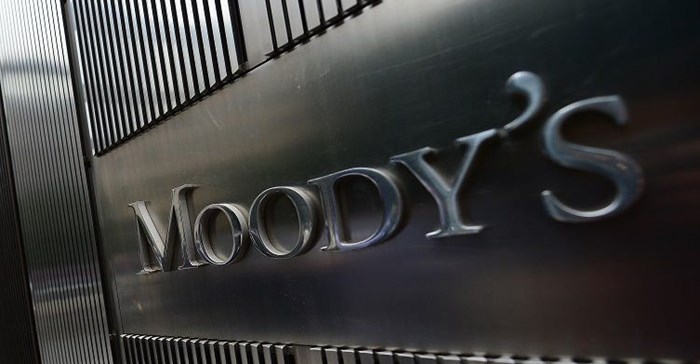
The ratings agency has changed the country’s long-term foreign and local currency debt ratings from Ba1 from Baa3 and maintained its negative outlook. South Africa’s debt rating is now rated below investment grade by all three major ratings agencies, namely Standard & Poor’s, Fitch and Moody’s.
According to Moody's, South Africa’s continued deterioration in fiscal strength and structurally weak economic growth supported its decision to downgrade. The agency expects government’s gross debt ratios to climb to 91% of GDP and the government deficit to widen to 8.5% of GDP in the near term.
National Treasury responded that the Moody’s decision could not have come at a worse time. South Africa, like many other countries, is seized with containing the outbreak of Covid-19.
“The sovereign downgrade will further add to the prevailing financial market stress. These two events will truly test South African financial markets. South Africa’s deep, stable financial sector and robust macroeconomic policy framework have always been flagged as a credit strength, including the South African Reserve Bank’s demonstration of a good track record in implementing credible and effective monetary policy and preserving financial stability,” a Treasury statement said.
Meanwhile Johannesburg Stock Exchange (JSE) Group CEO Leila Fourie said the full impact of the downgrade may be lost in the coronavirus noise.
“Markets and people are not reacting the way they might have in the past because of the sense of panic and uncertainty.
“During a time of crisis, the information value from ratings agencies can be drowned out by other factors influencing market movements. In fact, right now Covid-19 and the epidemiological forecasts outweigh Moody’s agency downgrade as they are better predictors of government action and economic growth.”
The biggest impact of the downgrade would be in the bond market as South African government bonds will fall out of the FTSE World Government Bond Index (WGBI), sparking an outflow of investment grade capital in the run up to and including the April rebalancing. Foreign investors own 37%, or about R780bn, of South Africa’s local-currency bonds, according to National Treasury data, she said.
“While index exclusion is likely to force outflows from passive funds in the coming weeks, some active managers could pick up the slack, limiting some of the net market fall out. The world capital markets are efficient, and they have already priced in the sub-investment grade risk that South Africa reflects, which is a slight relief. In fact, I believe we could see a partial bounce back after an initial negative reaction settle.”
Dawie Roodt, chief economist of the Efficient Group, said he expected a “deep” recession bottoming out at a negative rate of around 3-5%
“This country was not even close to being ready for the coronavirus and we are all going to pay a heavy price for it which is going to last for longer than most of us realise.
“This is way worse than the 2008 financial crisis and is going to last for a lot longer,” Roodt said. He warned that more than a million jobs could be lost over the next 12 to 18 months.
“I have been expecting this downgrade since the February 2020 National Budget. While the Budget contained some positive measures such as the surprise willingness to cut the size of the public sector wage bill, there were many negative factors as well.
“These included the execution risk around the planned reduction in the wage bill and an unsustainably high deficit targeted at the time (-6.8% of GDP). There was also no evidence for stabilising the debt-to-GDP ratio and lastly – and perhaps most importantly – no credible plan in executing a higher growth path for the South African economy. Based on these points, it was therefore assumed that a rating downgrade was coming at the end of March,” said Johann Els, chief economist at Old Mutual.